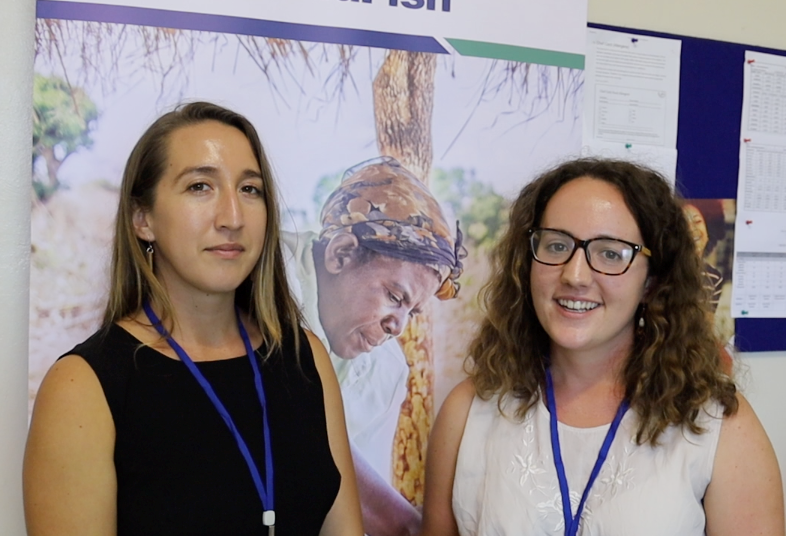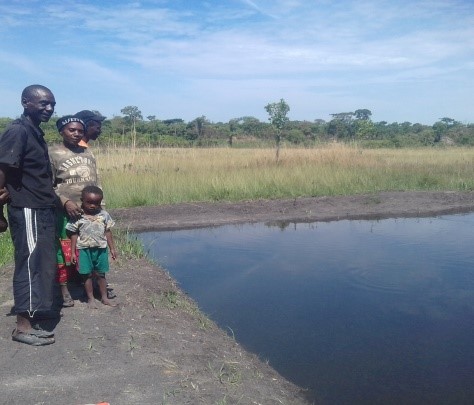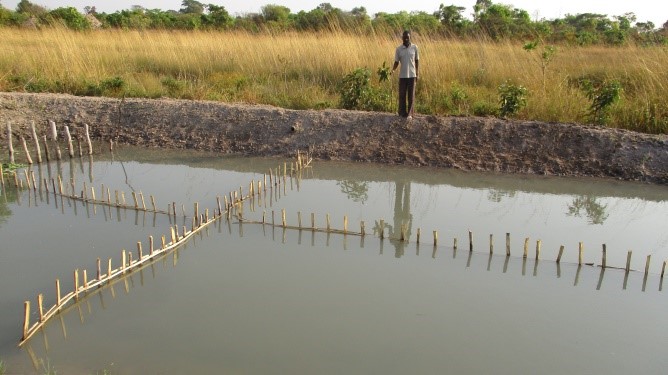We sat down with Peace Corps volunteers Taryn Cadena and Katie Thomas to ask them about their experience while working with WorldFish. The pair have journeyed to Zambia as Community Health Improvement Project (CHIP) volunteers with the Peace Corps. They are working as extension agents for the district-level Zambian Department of Fisheries through Worldfish, to find ways on how to best implement and improve aquaculture practices in their respective communities in Northern Zambia, and learn how to assist the Zambian Department of Fisheries in their larger role of connecting with fish farmers in rural areas.

Zambia currently remains as the only country where Peace Corps are currently supporting aquaculture development. Other cross-over programs such as agriculture, health and youth development contribute together to the continued implementation and improvement of fish farming worldwide. In conjunction with Worldfish, Peace Corps Volunteers provide collaborating research organizations with grassroots support and knowledge. Furthermore, Worldfish works as a catalyst for advancing scientific research for many Peace Corps volunteers. In particular, research around nutrition sensitive fish agri-food systems focuses around scientifically proven interventions in aquaculture and fisheries improvement, a topic of interest for the Peace Corps presence in Zambia.
Peace Corps Volunteers are expected to commit upwards of at least two years training, cultivating their knowledge and spark of genuine passion to apply their skills in order to facilitate change for many of Zambia’s struggling settlements. It often takes bilingual speaking capabilities, individuals who excel at picking up other languages and are embroiled with excitement of the thought to do some good in the world and broaden their experiences. Within these tightly knit communities, such as the villages in the Luwingu Province, of Northern Zambia, a Peace Corps Volunteer would reside for two years.

Farming is usually a hard business in these remote areas, and changing practices and ventures is perceived by farmers as immensely risky. Peace Corps Volunteers are trained to realize this before they are placed in their assigned communities and are trained to navigate challenges, such as encouraging farmers to implement better practices and behavior changes.

“My role as a Rural Aquaculture Promotion (RAP) volunteer meant that I was trained with my cohort by Peace Corps staff with proper cultural and professional experience to conduct village-appropriate aquaculture management workshops in various local languages spoken throughout Zambia. As a viable source of protein, fat, and calcium, these fish helped fill an otherwise unfilled nutritional gap for the family, most importantly the children under the age of five. To become volunteer extension agents for the district-level Zambian Department of Fisheries we had to figure out how to implement and improve aquaculture practices in our respective communities and learn how to assist the Department of Fisheries in their larger roles of connecting with fish farmers in rural areas. More than an extension role we have a responsibility to create a cooperative partnership with the local government affiliates.” – says Taryn Cadena, Peace Corp Volunteer in Zambia.

WorldFish operates research for development projects across nine different countries (Nigeria, Tanzania, Zambia, the Philippines, Bangladesh, Cambodia, Myanmar, Timor-Leste, and the Solomon Islands). Peace Corps currently serve in sixty-one countries worldwide, countries that request trained volunteers who typically work for two years in the following sectors: education, health, youth in development, agriculture, community economic development, environment, and response. With Peace Corps Volunteers direct involvement within these communities, they can stimulate further demand of more willing participants for Peace Corps and Worldfish joint projects.
“The importance of the creation of liaison roles that support the missions of the two organizations must be prioritized. As a Peace Corps Volunteer specifically assigned to this role with WorldFish, I was given the opportunity to display the current and potential positive influences these roles play at a WorldFish workshop on nutrition-sensitive fish agri-food systems in Lusaka, Zambia’s capital. The Peace Corps country directors and program managers need to become more informed and involved in these collaborative events for this role to further flourish and extend to other countries.” - explains Katie Thomas.